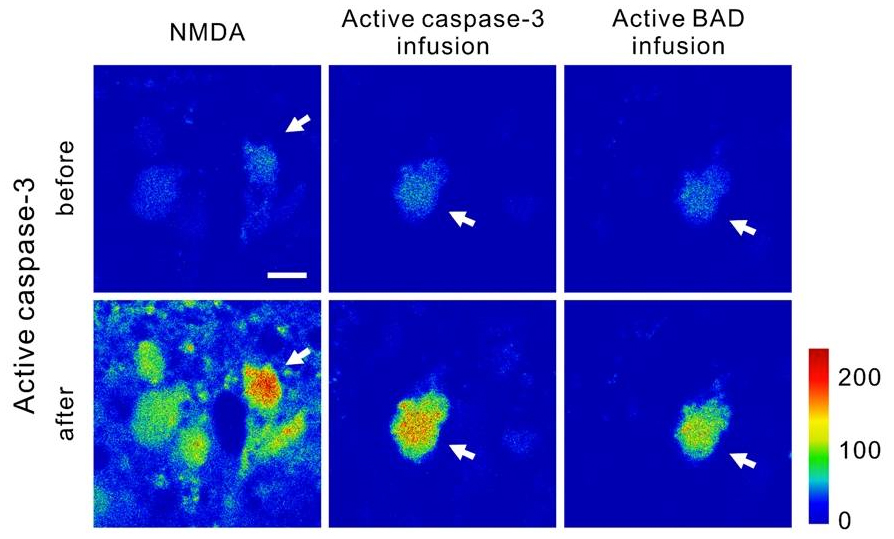From Mitochondria to Behavior
Mitochondria are dynamic cellular organelles involved in ATP synthesis and in apoptotic mechanisms (programmed cell death). However, in addition to these classically known functions, recent studies at the NIH have deciphered another intriguing role for mitochondria in the development and plasticity of neurons.
At the recent Society for Neuroscience conference in Washington, D.C., Dr. Zheng Li from NIMH outlined her latest findings in a presentation titled "Non-apoptotic functions of the mitochondria-caspase cascade at pre- and post-synaptic sites." Specific synapses in a region of the brain called the hippocampus mediate learning and memory, and these synapses can be strengthened or weakened by coincident neural activities through two types of processes: synaptic long-term potentiation (LTP) and long-term depression (LTD).
Earlier studies by Dr. Li in 2010 showed that LTD induction requires the mitochondria apoptosis pathway, a process that includes activation of caspase-3, a pro-apoptotic signaling molecule, by cytochrome c. This sophisticated mechanism causes the removal and internalization of AMPA receptor proteins, which are one of the key receptors for the excitatory neurotransmitter glutamate. Using a combination of electrophysiology and biochemical techniques, Dr. Li’s team demonstrated that genetic deletion or pharmacological blockade of caspase-3 prevents the induction of LTD in hippocampal neurons.
So, for the first time, researchers had elucidated a non-apoptotic role for caspases in neuronal synaptic plasticity. Continuing on from their work in 2010, Dr. Li’s group have now found that caspase-3 activation requires two other pro-apoptotic proteins, BAD and BAX, for synaptic depression in the hippocampus and that the intensity and duration of caspase-3 activation determines its role in cell death or LTD. While strong or prolonged activation of caspase-3 leads to cell death or apoptosis, weaker or brief activation does not and in turn leads to non-apoptotic activities like LTD.

Measurement of caspase-3 activity by fluorophore-labeled DEVD (FITC-DEVD) in hippocampal neurons before and after treatment with NMDA (left), caspase-3 (middle), or BAD (right). Arrows indicate infused cells. Image courtesy of Jiao and Li, 2011.
Since synaptic plasticity plays a crucial role in cognitive processes like learning and memory, the BAD-BAX signaling cascade has several implications in behavior and cognition. More recently, Dr. Li’s team discovered that mice deficient in BAX have disrupted long-term fear memories, specifically in memory consolidation.
It fascinates me to see how small changes in proteins can affect a host of signaling molecules and thereby lead to significant changes in brain function. Dr. Li’s series of studies provide interesting insights to the complex mechanisms that regulate synaptic processes in the central nervous system. To learn more about her exciting research, visit http://irp.nih.gov/pi/zheng-li.
Related Blog Posts
This page was last updated on Wednesday, January 31, 2024
